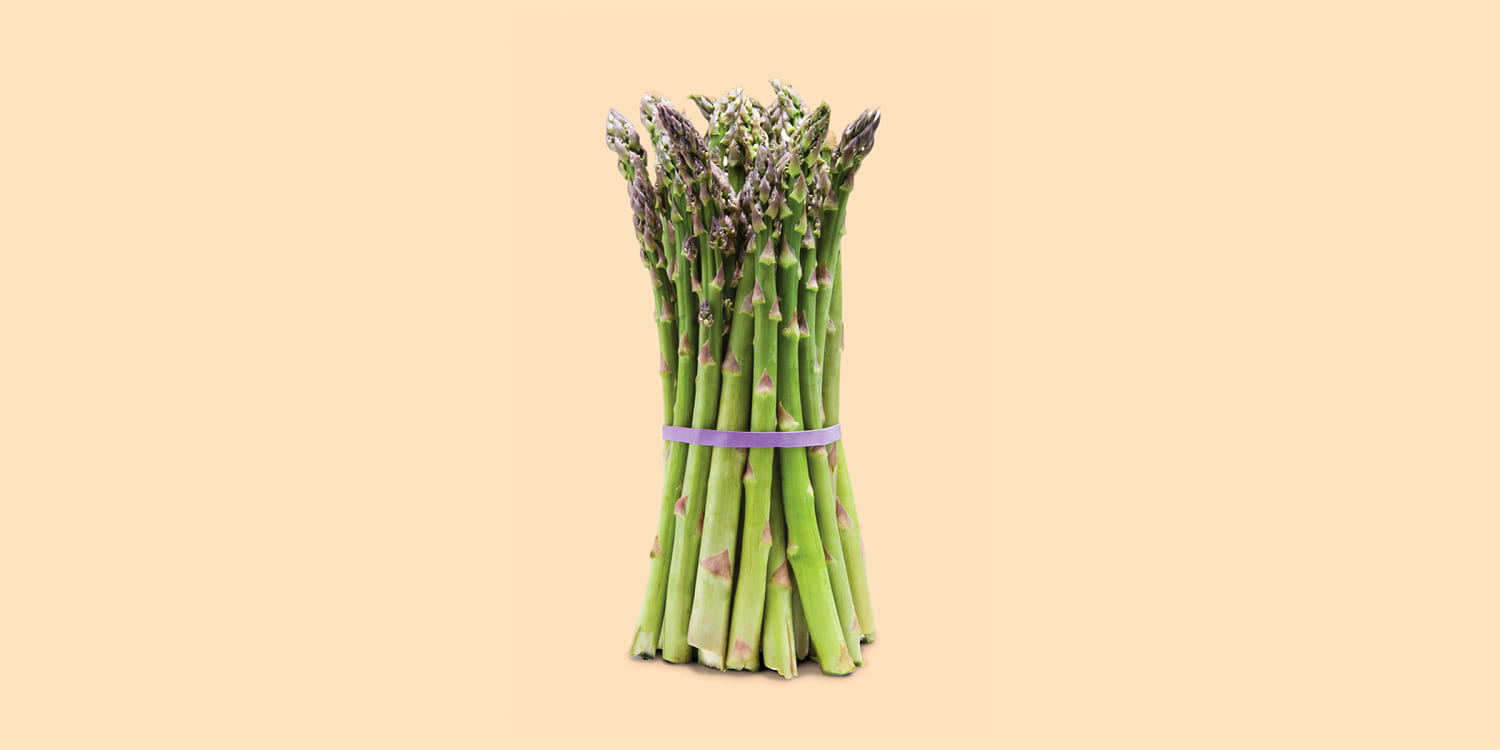Folate is a B vitamin that plays many important roles in the body. It's crucial for cell growth and development, red blood cell formation, and overall health. During pregnancy, folate helps reduce the risk of birth defects.
Folate is found naturally in foods, added to food products, and available as a dietary supplement. "Folate, also known as vitamin B9, is an essential water-soluble vitamin," Jamie Mok, registered dietitian and spokesperson for the Academy of Nutrition and Dietetics, tells TODAY.com.

The body can't produce folate on its own, so we need to get it from our diet. Folate and folic acid are often used interchangeably, but these two forms of vitamin B9 are from different sources. "Folate is the form found in foods, and folic acid is the (synthetic) form of folate that's found in fortified foods or supplements," says Mok.
Folate has a number of benefits. First, it's crucial for the synthesis and repair of DNA, the genetic material found in all cells, says Mok. Folate aids in tissue growth and helps our body metabolize amino acids, the building blocks of proteins, per .
The B vitamin is involved in an important metabolic reaction that helps convert the amino acid homocysteine to methionine, says Mok. “Too much homocysteine in our system can be problematic and may increase the risk of certain conditions, like heart disease,” Mok adds. Folate is important for the formation of red blood cells and a deficiency can lead to anemia, says Mok.
Folate is also involved in the synthesis of neurotransmitters, Mok adds, and plays a role in brain and nervous system health. "Folate is vital for the development of a growing baby," Frances Largeman-Roth, registered dietitian nutritionist, tells TODAY.com.
During pregnancy, adequate folate intake helps support the fetus's growing brain and spine. "Not having enough during the crucial start of a pregnancy can lead to neural tube defects in a baby," Largeman-Roth adds. The amount of folate you need per day depends on your age and health status.
The recommended daily allowance for folate is measured in micrograms of dietary folate equivalents (DFEs), . DFEs are used because the body absorbs more synthetic folic acid than folate found naturally in foods, says Mok. This means you need less folic acid to meet the recommended intake — for example, 240 micrograms of folic acid and 400 micrograms of folate both equal 400 micrograms DFE, per the NIH.
Folic acid supplements may be recommended for people who need more folate, including people who are pregnant. “Women are encouraged to start taking prenatal folic acid supplements at least three months before trying to conceive,” Largeman-Roth adds. People with certain medical conditions, such as inflammatory bowel disease, may be at risk of a folate deficiency and benefit from a folic acid supplement, says Mok.
Always talk to your doctor if you have questions about your folate intake. Most people in the United States consume adequate amounts of folate or folic acid through food, says Mok. “Because this nutrient is so important to the health of the population, many grain products are enriched with folic acid,” Largeman-Roth adds.
If you’re looking to up your intake, you can start by adding a variety of nutritious, folate-rich foods to your diet. Foods with the most folate include , cruciferous vegetables, legumes and fruits. "Many of the foods that top the list are really nutrient-dense in general," says Mok.
(The daily values referenced below are based on an intake of 400 micrograms per day, which is for healthy adults.) are a type of legume also known as pulses. They may be tiny, but lentils are packed with nutrients, including folate.
One-half cup of boiled lentils packs 179 micrograms of folate (about 44% of the daily value), per the . Lentils are an excellent source of plant protein, says Mok, as well as fiber, iron and potassium. "They're versatile and affordable," Mok adds.
, which is in season in the spring, is a delicious, folate-rich vegetable. Just four spears of asparagus provide 89 micrograms of folate, says Largeman-Roth, about 22% of the daily value. Asparagus is naturally low in fat and high in fiber, vitamin K, and antioxidants.
Spinach, a nutrient-dense leafy green, is another great source of folate, says Mok. One-half cup of boiled spinach provides 131 micrograms of folate, or 33% of the daily value, per the NIH. One cup of raw spinach provides 58 micrograms of folate or 15% of the daily value.
In addition to folate, spinach is rich in vitamins A, C and K, as well as magnesium and potassium. Beef liver is an extremely nutritious type of organ meat and one of the best animal sources of folate you can eat, says Mok. A single serving, or 3 ounces, of braised beef liver packs 215 micrograms of folate, which is about 54% of the daily value, .
Beef liver is also naturally high in vitamin A, iron and copper. Black-eyed peas — which are actually a type of bean — also top the list of foods naturally rich in folate, says Mok. A single serving, or one-half cup, of boiled black-eyed peas contains 105 microgram of folate (26% of the daily value), says Largeman-Roth.
This nutritious legume is also rich in protein, gut-healthy fiber, vitamins and minerals, including and iron. is a brightly-colored tropical fruit that’s rich in nutrients, including folate. One cup of sliced raw guava contains about 80 micrograms of folate, , which is roughly 21% of the daily value.
Guava also provides major doses of fiber, vitamin C and antioxidants. The tangy fruit can be used in sweet or savory dishes. Brussels sprouts are another folate-rich food, says Mok.
Just one-half cup of boiled provides 78 micrograms of folate, which is about 20% of the daily value, per the NIH. The sprouts are part of the cruciferous vegetable family. In addition to folate, Brussels sprouts are rich in fiber and vitamins C and K, the experts note.
Enjoy them boiled, or add raw shaved Brussels to salads for extra crunch and nutrients. Caesar salad lovers, rejoice. Romaine lettuce is delicious, crunchy and rich in folate and other nutrients.
lettuce contains 64 micrograms of folate, which is about 16% of the daily value, per the NIH. Romaine lettuce is also rich in vitamins A and K, as well as calcium, potassium and beta-carotenes, a powerful antioxidant. is among the fruits highest in folate, says Mok.
One-half cup of raw, sliced avocado packs about 59 micrograms of folate, which is 15% of the daily value. The rich, creamy fruit is a great source of heart-healthy monounsaturated fats, fiber, vitamins C and E, and essential minerals. Avocados are a great base for dips, addition to salads, and can be blended into smoothies and puddings.
Fortified foods contain synthetic folic acid, which is added during the manufacturing process. These are a convenient way to get more folic acid in your diet, says Largeman-Roth. However, unlike foods naturally rich in folate, fortified foods are more processed and often less nutrient-dense, the experts note.
Fortified foods high in folic acid include: It’s important to get a mix of folate-rich and fortified foods in your diet, with an emphasis on eating more plant foods overall. Caroline Kee is a health reporter at TODAY based in New York City. She covers a range of medical news, consumer health, and wellness topics.
.
Health

9 foods naturally rich in folate that you should add to your diet

Folate is a B vitamin that's crucial for cell growth and helps prevent birth defects of the brain and spine. Dietitians share 9 folate-rich foods to add to your diet.















